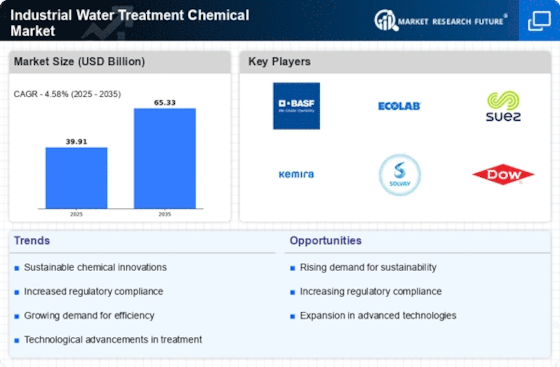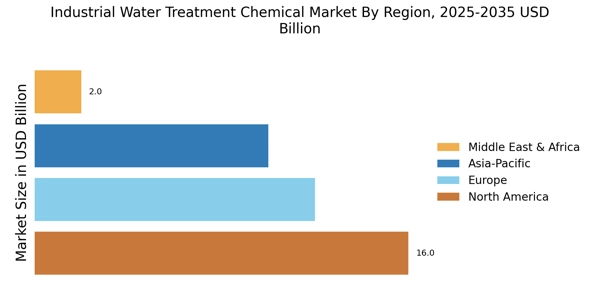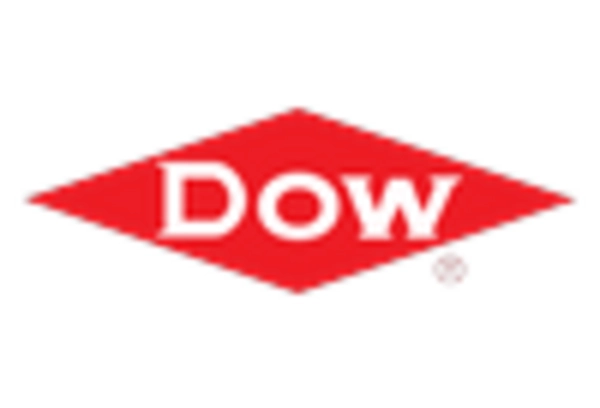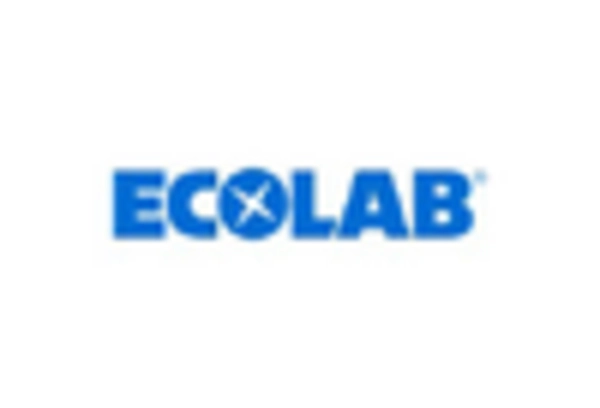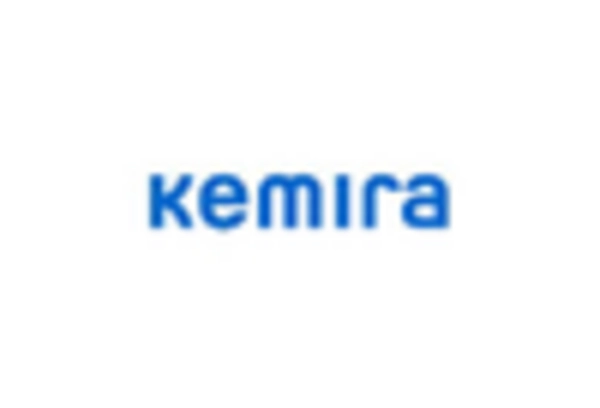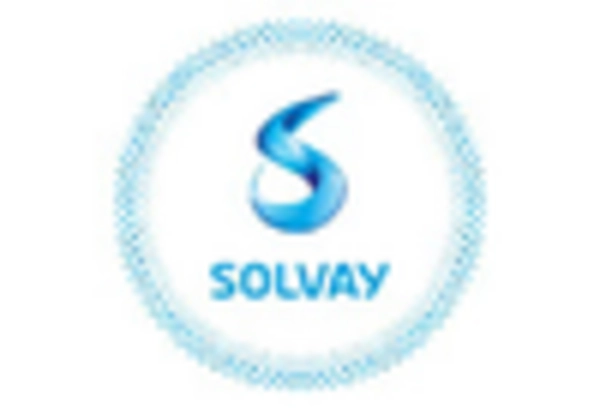Rising Industrialization
The ongoing trend of industrialization across various sectors is significantly influencing the Industrial Water Treatment Chemical Market. As industries expand, the demand for water treatment solutions escalates, particularly in manufacturing, energy, and food processing sectors. According to recent data, the manufacturing sector alone accounts for a substantial portion of water usage, necessitating effective treatment solutions to manage wastewater. This rising industrial activity not only increases the volume of wastewater generated but also amplifies the need for specialized chemicals that can address diverse contaminants. Consequently, the Industrial Water Treatment Chemical Market is poised for growth as industries seek to enhance their water management practices.
Regulatory Compliance Pressure
The Industrial Water Treatment Chemical Market is experiencing heightened pressure from regulatory bodies to comply with stringent environmental standards. Governments are increasingly enforcing regulations aimed at reducing water pollution and promoting sustainable practices. This has led to a surge in demand for advanced water treatment chemicals that can effectively remove contaminants and ensure compliance with legal requirements. For instance, the implementation of the Clean Water Act has necessitated the use of specific chemicals to treat industrial wastewater. As a result, companies are investing in innovative solutions to meet these regulations, thereby driving growth in the Industrial Water Treatment Chemical Market.
Increased Awareness of Water Scarcity
The growing awareness of water scarcity issues is driving the Industrial Water Treatment Chemical Market towards innovative solutions. As populations expand and water resources become increasingly strained, industries are compelled to adopt more efficient water treatment practices. This awareness has led to a greater emphasis on recycling and reusing water, which in turn boosts the demand for effective treatment chemicals. Industries are now more inclined to invest in technologies that enhance water recovery and minimize waste. The Industrial Water Treatment Chemical Market is thus likely to see a surge in demand for chemicals that facilitate these processes, reflecting a shift towards sustainable water management.
Growing Demand for Sustainable Solutions
The Industrial Water Treatment Chemical Market is witnessing a shift towards sustainable solutions as industries prioritize environmental responsibility. Companies are increasingly seeking eco-friendly chemicals that minimize environmental impact while maintaining treatment efficacy. This trend is driven by consumer preferences for sustainable practices and the need to comply with environmental regulations. The market for biodegradable and non-toxic treatment chemicals is expanding, as industries recognize the long-term benefits of adopting sustainable practices. This growing demand for environmentally friendly solutions is likely to stimulate innovation within the Industrial Water Treatment Chemical Market, leading to the development of new products that align with sustainability goals.
Technological Innovations in Treatment Processes
Technological advancements are playing a pivotal role in shaping the Industrial Water Treatment Chemical Market. Innovations such as membrane filtration, advanced oxidation processes, and bioremediation are revolutionizing how industries treat water. These technologies not only improve the efficiency of water treatment but also reduce the environmental impact of chemical usage. For instance, the introduction of smart water treatment systems allows for real-time monitoring and optimization of chemical dosing, enhancing overall treatment efficacy. As industries increasingly adopt these technologies, the demand for specialized treatment chemicals that complement these innovations is expected to rise, further propelling the Industrial Water Treatment Chemical Market.


